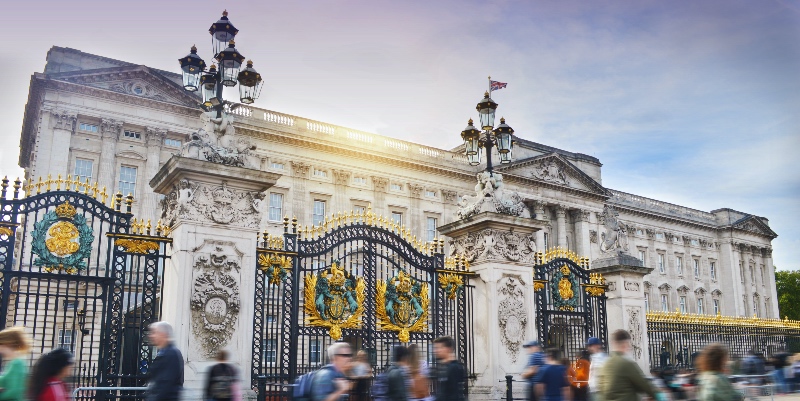September 2022
 Queen Elizabeth II (1926-2022)
Queen Elizabeth II (1926-2022)
Thank you Colin for your article. (A substitute religion?)
I have been somewhat disturbed by the reaction to the death of our Queen. She was a human being, like the rest of us, not a god. I have been shocked to hear people, including Christians, treating her as if she was sinless and perfect. Yes, she was a practicing Christian, and we must thank God for that, but she was very far from perfect. She was an extremely rich and privileged woman who had many foibles, certainly not a perfect human. Nor was she ordinary, like most of us.
I wonder, would the Queen really have wanted the funerals of other grieving families to be cancelled on her behalf? Would she have wanted operations and hospital appointments that people may have waited years for, being shunted back, causing upset and yet more pain? I suppose we will never know.
This feels all wrong, putting one dead person, no matter who, in front of the needs and health of others. Unlike us, she had private physicians on call whenever she wanted in her long and privileged life. No waiting lists for her. She had apparently huge financial and personnel resources, that the rest of us don't have. So why should Britain grind to a stop for so long over the death of one person, no matter how rich and famous?
We live in a country that has never, since Victorian times, seen the poverty we are seeing now. The Queen wasn't a law maker and couldn't interfere in Parliamentary decisions in our democracy. She was just a figurehead. What has she or her family actually done to help the suffering of her people in practical terms, other than smile and shake hands? So why all this sychophancy?
God must always have the first place in our hearts and lives, not a Queen. Then should come those who are suffering and in need, not some privileged human being - however nice we might perceive them to be. Celebrate her life, if you want, but don't stop the whole of society from carrying on their lives, if they need or want to. That's not democracy.
Moira Kleissner
I am interested to see the different views about the response of the population and churches to the death of the Queen. It is important to recognise that yes, the Queen was not perfect and should not in any way be worshipped. However, I believe we are in a unique and historic time that will never take place again - the death of someone who was our monarch for 70 years, who was faithful to her promise to serve, and indeed always portrayed herself as someone with a servant heart.
Yes she was rich and famous, but she used that privilege to serve many. This is perhaps the best opportunity the church will ever have to talk about Jesus and faith easily to others.
I find myself thinking if those going to London over these pre funeral days were to apply the same attitude of mind and action to Jesus that they are doing for our late Queen - what a fantastic place it would be! A shift in focus. A recognition of our one true Lord and Saviour and King.
Our late Queen set a great example of faith in Christ. I pray King Charles will do the same. Along with each one of us - to honour Jesus above all - King of Kings and Lord of Lords - Jesus, the Way the Truth and the Life.
Liz Connelly, pastor, Barlestone Baptist Church
I was shocked by the depth of feeling at my church. I was keen to let the Anglican church handle as much of the proceedings as possible. The British monarch is the head of the state church; not the dissenting traditions, after all.
I told my leadership team I was planning a fairly standard service for Sunday; nothing extravagant; an acknowledgement of the Queen's death, a short prayer for the royal family and those who mourn, and that was about it. If they wanted anything else, please could they le me know, I asked.
Fortunately they were far more in tune with the church than I was and they had a number of measures they asked me to implement as I outlined here. I was shocked (and remain shocked, and perhaps perplexed) at the outpouring of grief for the Queen, and rather uncomfortable at the fact I may be suffering from a lack of empathy.
Martin Hatfield, minister Kingshill Baptist Church, Great Missenden
 Re: A Baptist reflection on monarchy
Re: A Baptist reflection on monarchy
For much of my life I assumed that our Baptist commitment to separation of church and state implies that the state must be ‘secular’, in the sense of being neutral with regard to ‘religious’ matters. However, my belief in the lordship of Christ has eventually conquered my belief in the secular state. The biblical claim is that Christ is Lord of all. ‘All’ must include the state: the ‘religious’ and secular cannot be separated, for under the Lordship of Christ all is sacred.
Notwithstanding the thoroughly Christian funeral of the late Queen, our society now generally treats faith, and the vision and ethics generated by faith, as having no place in the public arena. We have to wonder how far the secular-religious dichotomy Baptists have tended to support, in the name of ‘separation of church and state’, has contributed to this sad and oppressive state of affairs.
It is certainly important for the church to be distinct from the state. God's calling for the state is different from his calling for the church, and the methods of the church are different from the methods - including the legitimate use of force - of the state. As Nigel points out, it would be contrary to the example and spirit of Christ to enlist the power of the state to compel people to conform to Christian faith and life. Furthermore, in the real world we must take account, of the fact that ‘not everyone has faith’ (2 Thess 3.2). However, does any of this require that the state ought to be secular?
It was good to hear Archbishop Welby reminding heads of state assembled at the Queen’s funeral, that they are responsible to God for their use of power. It would surely be right, and honouring to the Lord, for heads of state formally to acknowledge that dependence and accountability, as indeed it was acknowledged in the words ‘....God, by whom king’s reign...’ in the proclamation of the new King Charles. Jesus told Pilate he had no power except from God. Had Pilate publicly agreed with him, would he have been violating some supposedly God-given principle of the secularity of the state? According to Paul, the state can only understand its own legitimacy by acknowledging it has been ‘established by God’ (Rom.13.1).
If we grant that it is proper for the state, in some shape or form, to acknowledge God, we cannot avoid going on to ask, ‘Which God?’ The Unknown God of ancient Athens, the impersonal Supreme Being of the French Revolution – or the God revealed in Christ? We can only give one answer, and in doing so we imply that it would be good for there to be some kind of state recognition not just of a god, but of the character and will of the God revealed in Christ. That, in turn, implies a special recognition of the Christian Faith - not so that Christians can be defended, but because Jesus is Lord.
The state cannot help making decisions that overlap the territory of the kingdom of Christ. It protects life and property, sets the parameters of military action, has responsibilities for the poor, upholds and regulates marriage and family life etc. Christians and church bodies criticise government policy on a whole host of issues, on the basis of their Christian insights. Over-simple and under-informed as such criticisms often seem to be, they testify that the kingdom of Christ cannot be kept wholly separate from the state.
It must be granted that the degree to which the state can promote the honour and will of God will be limited by the gentleness of Christ, and so entail extensive (though not absolute) toleration. It must also be conceded that, in a democracy in which large sections of the population are not even nominally Christian, the limits of how far the state is able to identify itself with Christian teaching is inevitably severely limited. But do these qualifications give Christians justification to espouse the ideal of a godless state? How far the state can acknowledge God and be overtly guided by Christian teaching will be largely determined by pragmatic considerations, and will vary from time to time and place to place. Politics is the art of the possible.
We Baptists may look forward to the day when our head of state will not also be supreme governor of a national church. However, the much greater current issue for us in the West is not ‘church and state’, but ‘secular state’: the secular state that dreams it can successfully promote human values while abandoning divine ones; the big, centralised, secular state that increasingly takes to itself the micromanagement all of social life, while saying, in effect, to Christians, ‘You can have Jesus to be Lord of your individual, private life - but you may say or do nothing that so much as hints that he is lord of all’. The growing number of Christians dismissed from work, warned by the police or brought before the courts for publicly expressing their beliefs is a sign of the increasing and aggressive secularity of the British state.
Whether or not Baptists think it desirable that the state should give some kind of allegiance to the God and Father of our Lord Jesus Christ, we are probably agreed that, in the present age, the best any state can attain will fall far short of a total commitment to Christ. Indeed, Scripture, history and present experience teach that the state is likely often to be in conflict with the Lord and his ways. With this perspective, it seems strange that British Baptists are not advocates of the ‘small state’.
Believing Christ is Lord of all life, we want to see – and have a duty to promote – Christ-centred education, Christ-centred health care, Christ-centred welfare etc. Our faith in the lordship of Christ tells us these ideals should be pursued, but our Baptist view of the limitations of the state tells us the state cannot (many would say ‘should not’) pursue them. This dilemma for Christians has an obvious way out: we should argue for the pushing back of the boundaries of the modern omnicompetent state, the state that has taken to itself the roles of educator, healer, provider etc. We should seek to recover the historic British tradition of dispersing responsibilities throughout society (albeit perhaps part-funded from taxation, so as to ensure the poor are not unduly disadvantaged). Within such a system Christians would be free to create Christ-centred education, welfare, health care etc., while others provide them according to their own values and philosophies.
In conclusion, perhaps our allegiance to a Christ who is lord of all should cause us to see that the British Baptist view of the state has tended to be both too negative and too positive. Too negative in that we have resigned ourselves to the secular state; too positive in that we have meekly allowed the state to assume responsibilities it is not competent to discharge.
Michael Thomas, Olive Tree Church (Blenheim Cresc. Baptist) Luton